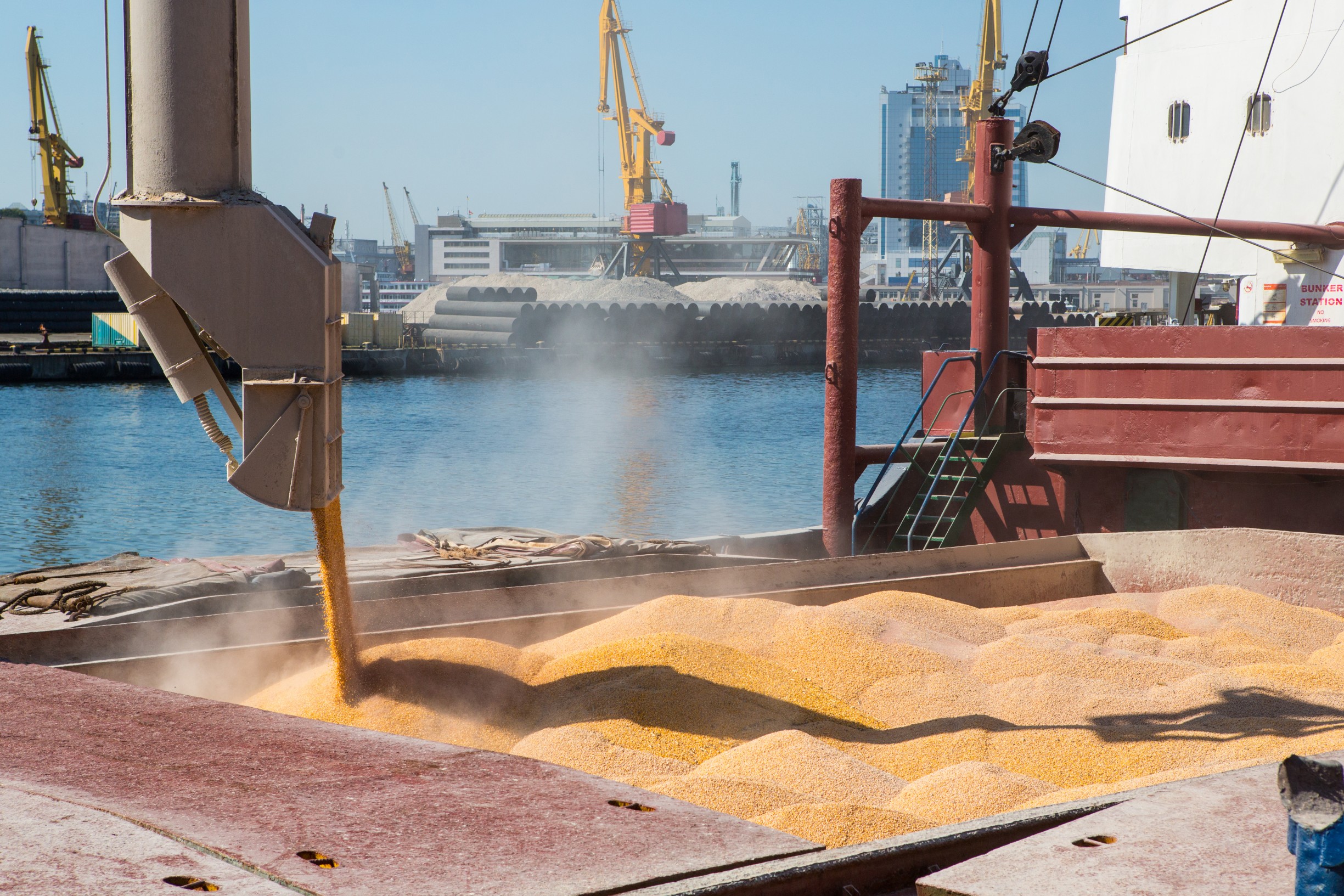
Case Update – Lord Marine Co. S.A -v- Vimeksim SRB D.O.O [2024] EWHC 3305 (Comm): Court’s power of sale
March 31st, 2025
Case Update – Lord Marine Co. S.A -v- Vimeksim SRB D.O.O [2024] EWHC 3305 (Comm): Court’s power of sale
Introduction
The Commercial Court issued a judgment at the end of last year clarifying its powers of sale to preserve deteriorating assets in support of arbitration proceedings.
Background
The Dispute
By a voyage charterparty dated 12 April 2024 on an amended Synacomex 200 form (the “Charterparty”), Lord Marine Co. S.A (“Owners”) let the MV Lord Hassan (the “Vessel”) to Vimeksim SRB D.O.O (“Charterers”) for the carriage of 11,000 mt of Ukrainian corn in bulk (the “Cargo”) from Chornomorsk, Ukraine to Iskenderun, Turkey.
The Charterparty provided inter alia:
“21 FREIGHT TO BE PAID BY CHARTERERS 100 PCT LESS COMMISSION IN USD CURRENCY W/13 … BDAYS AFTER SIGNING/RELEASING BS/L BUT IAC BBB”
“…Owners shall have a lien on the cargo for freight, deadfreight, demurrage and average contributions due to them under this Charterparty.”
Owners issued a Bill of Lading on Congenform 1994 standard form on 18 May 2024 (the “B/L”). The B/L named the consignee, Altin Ates Kimya AS, as receivers (the “Receivers”) and was marked “FREIGHT PREPAID”. The reverse terms of the B/L included the following provision: “All terms and conditions, liberties and exceptions of the Charterparty, dated as overleaf, including the Law and Arbitration Clause, are herewith incorporated.”
Freight was not prepaid nor was it paid at any time and Owners retained the B/L. Due to the failure to pay freight, in accordance with the terms of the Charterparty, Owners exercised a lien over the Cargo prior to discharge at Iskenderun, Turkey. On 26 May 2024, the local court in Iskenderun recognised the lien, and the Cargo was then discharged to a warehouse owned by the Receivers, but under the control of Owners.
Owners then commenced arbitration proceedings against Charterers for unpaid freight on 3 September 2024 appointing Mr Richard Rayfield as arbitrator on LMAA terms. Charterers did not respond to the arbitration notice. No defence to the claim for freight was raised nor was any explanation given by Charterers for their failure to pay.
The Cargo
Owners were concerned about the condition of the Cargo and instructed Mr Ellyatt a cargo scientist at Brookes Bell to sample and test the Cargo on 28 September 2024. Charterers were invited to the sampling but did not attend and responded to state that the Cargo had been sold to a third party.
The results of the initial sampling were that the Cargo was clearly deteriorating. There were sign of self-heating in areas, clumping, significant caking due to mould growth and heavy infestation of insects and maggots.
Mr Ellyatt advised that the Cargo be sold as soon as possible in order to prevent further deterioration and a potential total loss. A further update was provided on 1 October 2024 that the entirety of the Cargo was at risk of deterioration to the point where it would no longer be able to be used as intended. Mr Ellyatt again stressed the need for an immediate sale to prevent a total loss.
The Application
Against this backdrop, the Owners made an urgent application to the Commercial Court once Mr Rayfield had been appointed as sole arbitrator under section 44 of Arbitration Act 1996 seeking an order to sell the Cargo to secure their claim in the arbitration proceedings. The Charterers did not engage with the proceedings in the Commercial Court.
The Law
Section 44 of the Arbitration Act 1996 provides for the Court powers exercisable in support of arbitral proceedings as follows:
(1)Unless otherwise agreed by the parties, the court has for the purposes of and in relation to arbitral proceedings the same power of making orders about the matters listed below as it has for the purposes of and in relation to legal proceedings.
(2)Those matters are—
(a)the taking of the evidence of witnesses;
(b)the preservation of evidence;
(c)making orders relating to property which is the subject of the proceedings or as to which any question arises in the proceedings
(i)for the inspection, photographing, preservation, custody or detention of the property, or
(ii)ordering that samples be taken from, or any observation be made of or experiment conducted upon, the property;
and for that purpose authorising any person to enter any premises in the possession or control of a party to the arbitration;
(d)the sale of any goods the subject of the proceedings;
(e)the granting of an interim injunction or the appointment of a receiver.
(3)If the case is one of urgency, the court may, on the application of a party or proposed party to the arbitral proceedings, make such orders as it thinks necessary for the purpose of preserving evidence or assets.
(4)If the case is not one of urgency, the court shall act only on the application of a party to the arbitral proceedings (upon notice to the other parties and to the tribunal) made with the permission of the tribunal or the agreement in writing of the other parties.
The relevant power for the purposes of this application is contained in CPR r.25.1, “for the sale of relevant property which is of a perishable nature or which for any other good reason it is desirable to sell quickly”.
While the Court had power under section 43 (3) to order sale in the absence of the tribunal’s permission and written consent of the parties, that was irrelevant for the purpose of this application as Mr Rayfield had given consent to Owners’ application.
The question of the “Subject of Proceedings” was considered in The Moscow Stars [2017] EWHC 2150 (Comm). Males J held that the phrase “the subject of the proceedings” required a closer connection between the cargo and the arbitral proceedings than would be sufficient if the Act said that only the goods should relate to the proceedings in some way:
“…where a contractual lien is being exercised over a defendant’s goods as security for a claim which is being advanced in arbitration…It is sufficient that the lien is being exercised in support of the arbitral claim and that, as a result, there is an impasse between the parties pending issue of an award…”
The court went on to find that there was a power to order the sale of cargo as the Claimant was exercising a contractual lien over the cargo in support of a claim in arbitration and as such there was an impasse between the parties pending the Tribunal’s award.
The key differences between the Moscow Stars and the present case were that the cargo, oil, was not perishable but Males J still considered it appropriate to make an order as the cargo had been on board for 9 months and would remain on board for the foreseeable future until an order for sale was made. The second being that in the present case it appeared that the Charterer did not own the Cargo, and it had been sold to a third party.
Commercial Court decision
Bryan J held that the Cargo should be sold, and that Owners give an appropriate undertaking in damages in the event that they had exercised the lien wrongfully.
The Court was satisfied that the tests under section 44 (2) (d) had been met as a contractual lien had been exercised over the Cargo in circumstances where a claim had been advanced in arbitration.
The Court was also satisfied that the cargo was of a perishable nature and that its value would quickly deteriorate on the basis of Brookes Bell’s evidence, so the Court had the power to order the sale of relevant property under CPR r.25.1. Similarly, the Court was satisfied that if the order was not given, the value of the lien to Owners would be impaired.
The issue of the cargo being sold to a third party was also considered. As Owners had retained the B/L, this was not a case where Owners were obliged to deliver the Cargo to the lawful holder. Further, the B/L incorporated the terms of the Charterparty including the lien clause so even if Owners had not retained the B/L the lawful holder would have been bound by the lien clause (Voyage Charters, paragraph 17.17).
Had the B/L been transferred to the consignee or endorsee and they had relied upon the B/L being marked “FREIGHT PREPAID”, that could have potentially given rise to an estoppel, but this was a case where Owners had retained possession of the Cargo. The Court also relied on the case of The Corinna [2015] SGHC 311 where the Singaporean court held that the ownership of the cargo was not a defence to a claim where perishable cargo had to be sold quickly and the fact that the Receivers could have intervened and attended the hearing if they wanted to.
Comment
This case reaffirms that an Owner has a remedy to secure a claim in arbitration where the subject cargo is of a perishable nature providing that there is a sufficient connection between the cargo and that claim (thereby confirming the decision in The Moscow Stars). The court will not hesitate to make an order where there is risk that the purpose of a lien will be infringed by the cargo perishing.
Although not an issue in this case, it is also a reminder to an owner that they need to be careful when applying to sell cargo for the following reasons:
- To ensure that the terms of the charterparty are incorporated into the Bills of Lading;
- If the Bills of Lading have been released, a receiver may rely on the FREIGHT PREPAID marking to create an estoppel; and
- If the cargo is owned by a third party they may have a claim against the owner under the Bills of Lading or under the tort of conversion for interfering with/ failing to deliver the goods.
Are you on board?
Get in touch